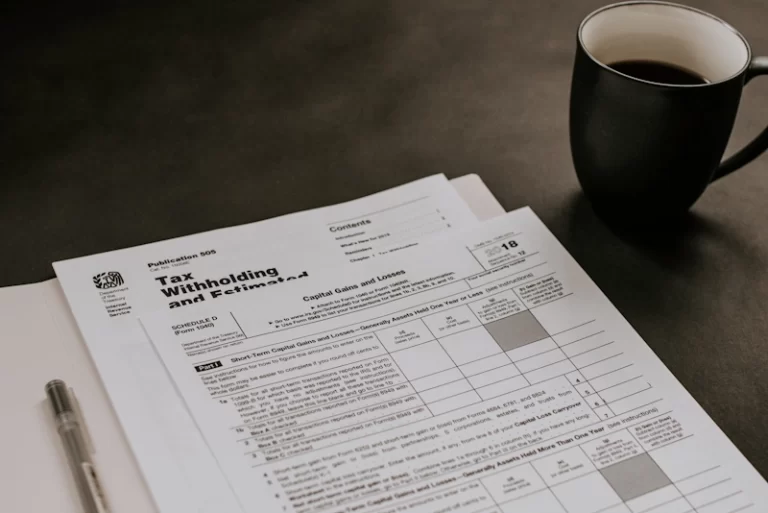Key Highlights
- Dividends are payments made by corporations to shareholders as a way to distribute profits.
- Dividends can be paid as cash or stock, with cash dividends being the most common.
- Dividends are a great way for investors to earn passive income and for companies to reward their shareholders.
- There are two main types of dividends in Singapore: interim and final dividends.
- Dividend income in Singapore is generally non-taxable for shareholders due to the one-tier corporate tax system.
- Dividends can be calculated by determining the number of shares held and the dividends paid per share.
Introduction
Dividends are an important aspect of investing and finance, providing investors with a steady stream of income and serving as a reward for their investment in a company. In Singapore, dividends are a common practice among corporations, and understanding how dividends work is essential for both investors and companies.
This comprehensive guide will take you through the essential aspects of dividends in Singapore, covering everything from the basics of what dividends are to how they are calculated and the necessary paperwork involved in declaring and issuing dividends. Whether you are an investor looking to maximize your returns or a company preparing to distribute dividends, this guide will provide you with the information you need to navigate the world of dividends in Singapore.
Understanding Dividends in Singapore
Dividends in Singapore refer to the payments made by corporations to their shareholders as a way to distribute the company’s profits. These payments can be made in the form of cash or stock, with cash dividends being the most common. Dividend income is considered a form of passive income for investors, allowing them to earn a return on their investment without actively participating in the company’s operations. Singapore resident companies are subject to a corporate tax rate, but dividends distributed to shareholders are generally exempt from further taxation in Singapore due to the one-tier corporate tax system.
Importance of Dividends for Investors and Companies
Dividends play a crucial role for both investors and companies. For investors, dividends provide a stable source of income that can supplement capital appreciation. Dividend yield, which is the annual dividend payment divided by the stock price, is an important metric for investors looking to compare investment opportunities. Additionally, dividends are often not taxed at the shareholder level in Singapore, making them an attractive option for income-seeking investors.
For companies, dividends can help attract investors and maintain shareholder morale. By distributing profits to shareholders, companies can reward their investors for their support and provide an incentive for continued investment. Dividends also allow companies to allocate excess cash in a way that benefits shareholders while still allowing for capital appreciation and growth.
Types of Dividends Issued in Singapore
In Singapore, there are several types of dividends that can be issued by companies. The most common types of dividends are cash dividends, which are paid in the form of cash to shareholders. Another type of dividend is stock dividends, where shareholders are given additional shares in the company instead of cash. Real estate investment trusts (REITs) are another type of investment that can issue dividends to shareholders in the form of rental income from the properties owned by the REIT. These different types of dividends offer investors a variety of options when it comes to earning income from their investments.
Cash Dividends Explained
These dividends are paid out in the form of cash to shareholders. The amount of the dividend payment can vary and is determined by the company’s board of directors. Cash dividends are typically non-taxable for shareholders under the one-tier corporate tax system, meaning that shareholders do not need to pay additional income tax on the dividend income they receive. It is important for shareholders to keep track of their cash dividend payments and report them accurately if required by their home country’s tax regulations.
Share Dividends and How They Work
Unlike cash dividends, share dividends (also known as scrip dividends) are distributed in the form of additional shares in the company. This means that shareholders receive additional ownership in the company rather than cash. Share dividends are often implemented as a way for companies to reward shareholders while preserving cash for other purposes, such as reinvesting in the business or paying down debt. Shareholders who receive share dividends have the right to vote on company matters and may benefit from any future capital appreciation of the stock. However, it is important to note that share dividends do not provide immediate income to shareholders and are subject to capital gains tax when the shares are eventually sold.
Preparing to Issue Dividends: A Beginner’s Guide
Before a company can issue dividends, there are several steps that need to be taken to ensure compliance with legal requirements and proper documentation. The declaration of dividends is a decision that must be made by the company’s board of directors, and the process involves the preparation of various accounting documents. This section will provide a beginner’s guide to preparing for the issuance of dividends, including the essential documentation and legal requirements.
Essential Documentation and Legal Requirements
When preparing to issue dividends, there are several essential documents and legal requirements that must be met. These include the preparation of interim financial statements, which provide an overview of the company’s financial position and profitability. The dividend information, including the amount of the dividend and the record date, must be included in the financial statements. Additionally, the company must comply with the regulations set forth by the Inland Revenue Authority of Singapore (IRAS) regarding the payment of dividends and the reporting of dividend income.
Setting Up Your Business for Dividend Distribution
Setting up your business for dividend distribution involves several steps, including establishing the company as a private resident company or a resident company in Singapore. Private resident companies are limited to a maximum of 50 shareholders, while resident companies have no restriction on the number of shareholders. Additionally, the company must have a board of directors responsible for making decisions regarding the declaration and issuance of dividends.
Step-by-Step Guide to Declaring Dividends
Declaring dividends involves several steps that companies must follow to ensure compliance with legal requirements and proper governance. This step-by-step guide will walk you through the process of declaring dividends, including the necessary documentation and legal requirements.
Step 1: Board Resolution for Dividend Declaration
The first step in declaring dividends is for the company’s board of directors to pass a board resolution. This resolution will outline the decision to declare a dividend and the amount to be paid to shareholders. The board resolution should be properly documented and recorded in the company’s minutes. It is important for the board to consider the company’s financial position and profitability when making the decision to declare a dividend, as dividends can only be paid out of the company’s profits. Once the board resolution is passed, it must be presented to the shareholders for approval at the annual general meeting.
Step 2: Compliance With Legal Requirements
After the board resolution for dividend declaration has been passed, the company must ensure compliance with legal requirements. This includes complying with the Income Tax Act, which governs the payment of dividends and the reporting of dividend income. The company’s shareholders must also be informed of the dividend payment through the distribution of dividend vouchers. Additionally, the company’s financial statements must accurately reflect the dividend payment, including the amount of the dividend and the record date.
Step 3: Dividend Payment Process to Shareholders
Once the board resolution has been passed and the company has complied with the necessary legal requirements, the dividend payment process can begin. The payment of dividends to shareholders typically involves the distribution of dividend vouchers, which serve as proof of the dividend payment. The record date is the date on which shareholders must be registered as owners of the company’s shares in order to be eligible to receive the dividend payment. The dividend payment process should be properly documented and recorded to ensure accurate reporting and compliance with legal requirements.
Tax Implications of Dividends in Singapore
When it comes to dividends in Singapore, there are important tax implications to consider. Singapore follows a one-tier corporate tax system, which means that dividends paid by resident companies are not taxed at the corporate level. This helps to prevent double taxation, as the profits generated by the company have already been subjected to income tax.
There are two categories of dividends in terms of tax implications: taxable dividends and non-taxable dividends. Taxable dividends include dividends paid by co-operatives and foreign-sourced dividends derived by individuals through a Singapore-based partnership. On the other hand, non-taxable dividends include most dividends paid by Singapore resident companies under the one-tier corporate tax system, as well as income distribution from Real Estate Investment Trusts (REITs).
It’s important to note that foreign dividends can be subject to taxation in Singapore, depending on the circumstances. For example, if a resident individual receives foreign-sourced dividends through a partnership in Singapore, they may be taxable. However, if the dividends are received directly and not through a partnership, they may be exempt from taxation. The specific conditions and exemptions for foreign-sourced dividends can be found in the Income Tax Act.
Understanding the Tax Treatment for Companies
Singapore has a flat corporate tax rate of 17%, which is relatively low compared to many other countries. However, dividends paid by resident companies to their shareholders are exempt from corporate tax, as they have already been subjected to income tax at the company level.
Companies must ensure that they have sufficient profits to declare and pay dividends. This means that companies should carefully assess their financial position and profitability before declaring dividends.
It’s also worth noting that not all dividends are exempt from taxation. Certain dividends, such as those paid by co-operatives, may be subject to income tax.
Tax Obligations for Shareholders Receiving Dividends
Shareholders receiving dividends in Singapore also have tax obligations to consider. The tax treatment of dividend income depends on the nature of the dividends and the residency status of the shareholders.
In general, most dividends paid by Singapore resident companies under the one-tier corporate tax system are not taxable for shareholders in Singapore. This means that shareholders do not need to pay income tax in Singapore on these dividends.
However, there are certain situations where dividend income may be taxable. For example, foreign dividends received by residents of Singapore through a partnership in Singapore may be subject to taxation.
To ensure compliance with tax laws, shareholders should accurately report their dividend income on their tax returns. This includes declaring dividends received from both Singapore resident companies and foreign entities.
By understanding their tax obligations, shareholders can effectively manage their dividend income and fulfill their tax responsibilities in Singapore.
Best Practices for Managing Dividend Payments
By following best practices, companies can ensure smooth and efficient dividend distribution while maintaining good relationships with shareholders.
One important aspect of managing dividends is establishing a clear dividend policy. This policy outlines the criteria for declaring and paying dividends, ensuring consistency and transparency. Companies should consider factors such as profitability, cash flow, and future growth plans when determining their dividend policy.
Communication with shareholders is also crucial. Companies should provide timely and accurate information about dividends, including the amount, frequency, and payment dates. This helps shareholders plan their finances and understand the company’s financial performance.
When it comes to dividend payouts, companies should prioritize financial stability and sustainability. They should ensure that dividend payments are made from actual profits and not from borrowed funds or capital. This helps to maintain the company’s financial health and avoid potential legal and financial issues.
By following these best practices, companies can effectively manage dividend payments and maintain positive relationships with shareholders.
Establishing a Dividend Policy
A dividend policy outlines the guidelines and criteria for declaring and paying dividends to shareholders.
One aspect of a dividend policy is determining the type of dividends to be paid. Companies can choose to pay cash dividends, which are the most common type, or other forms such as stock dividends or property dividends. The decision on the dividend type should align with the company’s financial goals and the preferences of the shareholders.
Establishing a dividend policy is a great way to ensure consistency and transparency in dividend distribution. It helps companies make informed decisions and communicate effectively with shareholders about dividend payments.
Communicating with Shareholders About Dividends
Clear and timely communication helps to foster trust and transparency between the company and its shareholders.
Companies should provide relevant and accurate information about dividends to shareholders. This includes details such as the amount of dividends, the payment date, and any conditions or restrictions associated with the dividends. By providing this information, shareholders can make informed decisions about their investments and understand the company’s financial performance.
Communication should be conducted from the shareholders’ point of view, addressing their concerns and providing answers to their questions. Companies should be proactive in providing dividend information and ensuring that shareholders have access to the necessary documentation, such as dividend vouchers and board meeting minutes.
By effectively communicating with shareholders about dividends, companies can build strong relationships and maintain trust with their shareholders. This ultimately contributes to the overall success and stability of the company.
Conclusion
Understanding dividends in Singapore is crucial for both investors and companies. From cash dividends to stock dividends, the types issued play a significant role in financial decision-making. Preparing to issue dividends involves essential documentation and legal compliance. Tax implications must also be considered, along with best practices for managing dividend payments. By following a step-by-step guide for declaring dividends and staying informed about legal requirements, businesses can navigate dividend distribution successfully.
Frequently Asked Questions
Are all dividends in Singapore subject to tax?
Not all dividends in Singapore are subject to tax. Most dividends paid by Singapore resident companies under the one-tier corporate tax system are not taxable in Singapore in the hands of the receipient. However, there are certain dividends, such as those paid by co-operatives, that are taxable.
How often can a company declare dividends?
A company in Singapore can declare dividends at any time, depending on its financial position and profitability. Interim dividends can be announced before the annual profit or loss is determined, while final dividends are announced after the financial statement for the fiscal year has been reported during the company’s annual general meeting.
What are the consequences of not following legal requirements for dividend distribution?
The Inland Revenue Authority has strict regulations regarding dividend payments, and failure to comply can result in penalties and legal repercussions. Companies may be required to rectify the non-compliance and may face fines or legal action from shareholders.
Can foreign shareholders receive dividends from Singapore companies?
Yes, foreign shareholders can receive dividends from Singapore companies. Dividends paid by Singapore resident companies are not subject to double taxation, as the company has already paid income tax on the profits. However, specific regulations and tax treaties may apply to foreign shareholders, depending on their country of residence. It is important for foreign shareholders to consult with tax advisors to understand the tax implications of receiving dividends from Singapore companies.
How do stock dividends differ from cash dividends in terms of taxation?
Stock dividends and cash dividends differ in terms of taxation. Cash dividends are typically subject to income tax, while stock dividends may be exempt from taxation. Stock dividends involve the distribution of additional shares of stock to shareholders, while cash dividends involve the distribution of cash.





